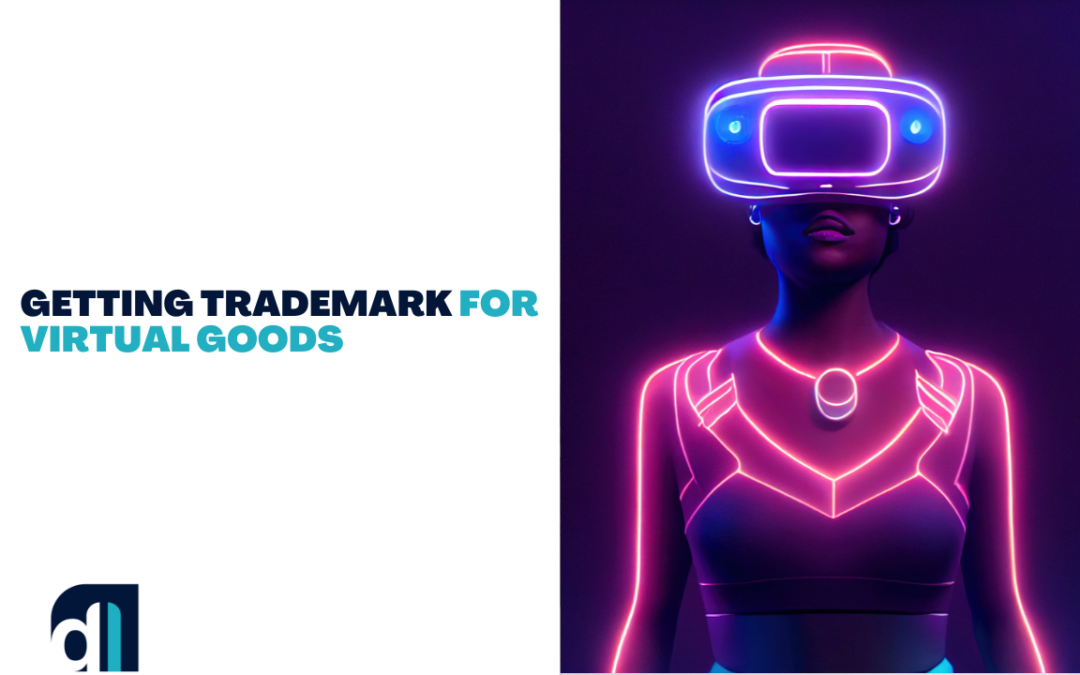With the rise in the metaverse commerce, the protection granted under the intellectual property laws for the physical goods and services appears to be in demand for the virtual products as well. With the passage of time, it has become incumbent for the virtual brand owners to protect their goods, services, brand names and logos by claiming legal ownership over their rights.
One way for them is by registering the trademark for their brand and protect their rights under the trademark laws. However, a prominent question in this regard is whether the current trademark laws cover the rights in the metaverse as well. The answer to this lies in the classification of goods and services that have been introduced to specifically cover virtual goods and services.
Why is it Necessary to Protect Your Virtual Goods?
As mentioned above, it is necessary to have ownership of the goods you are selling in Metaverse, and a way to do that is by acquiring trademark registration. This is one of the most emphasized aspects while conducting business as piracy and infringement a key and common issues amongst business owners and you face the risk of harm at the hands of your rivals against your brand’s reputation. In a manner, the issues faced in the metaverse are more or less similar to what a brand owner faces while conducting business in the real world.
For instance, brand such as Hermes has filed trademark application for its virtual goods after initiating court proceedings against Mason Rothschild for infringing upon the former’s NFTs.
More and more brands are adopting the practice of registering the trademarks in advance in order to protect from rival brands and to avoid conflicts such as the one discussed above. Having trademark registrations at hand prevents others from registering similar marks and thus establishes the position of your business in the metaverse.
Other routes are also available such as filing suit for unfair competition however such litigation is often lengthier and has hefty costs. Therefore, registering the trademarks is considered the optimal way by trademark attorneys to protect your brand in the virtual world.
What Kind Of Virtual Goods Can Acquire Trademark Registration?
The registration can be acquired for a variety of virtual goods that can include virtual logos, character names, and designs in games, virtual stores and environments, etc. In other words, any physical good that is capable of becoming virtual can acquire protection by way of trademarking.
Procedure To Register Metaverse Trademark
In the US, the registration procedure for virtual goods and services is the same as that for physical ones. All you have to do is submit a trademark application with the USPTO (United States Patent and Trademark Office).
Although you can acquire for registration under an existing trademark too, the safest way is to apply with USPTO as there is a chance that your existing mark is only protected in the physical world and not the virtual space.
Furthermore, you can ascertain if the logo/name you intend to trademark is not registered in the name of your virtual counterparts by simply making a quick search the USPTO’s Trademark Electronic Search System (TESS).
Classes For Virtual Goods
It is imperative to have an overview of the classes of goods and services under which a trademark filing is carried out. Following are the key classes of goods that are commonly used for filing trademark applications for virtual goods and services:
- Class 9 encompasses downloadable virtual goods, including images and multimedia files featuring artwork and video.
- Class 35 includes retail store services featuring virtual goods and entertainment services. It is also utilized for online marketplaces and websites facilitating the buying, selling, and trading of NFTs.
- Class 41 pertains to online, non-downloadable virtual clothing and accessories designed for use in virtual environments.
- Class 42 encompasses online, non-downloadable virtual goods and NFTs.
Preparing a Plan To Protect Your Brand
More and more brands are now flocking to establish their presence in the virtual world of the metaverse and therefore the need to protect your trademark for your virtual products and services has never been more pressing. You need to have firm protection on your trademark rights to avoid any potential hassle.
Our experienced principal attorney at Drishti Law can assist you with all of your trademark registration and enforcement concerns. We provide a range of customizable services tailored to meet the specific legal needs of your brand, enhancing the visibility of your intellectual property.

Sahil Malhotra
Sahil Malhotra is an Intellectual Property Attorney, who founded Drishti (“vision”) law because of his vision in protecting dreams and ideas.
He provided individuals and small businesses with an opportunity to enhance their IP’s value by helping them register trademarks and successfully argue against office actions. In addition to his training and experience, he has been deeply involved in the multifaceted IP portfolio at UIC and continues to be associated with IP organizations and conferences.
To know more about Sahil Malhotra — Click Here
You may follow Sahil Malhotra on Facebook: Sahil Malhotra and on Instagram: @Sahil Malhotra

